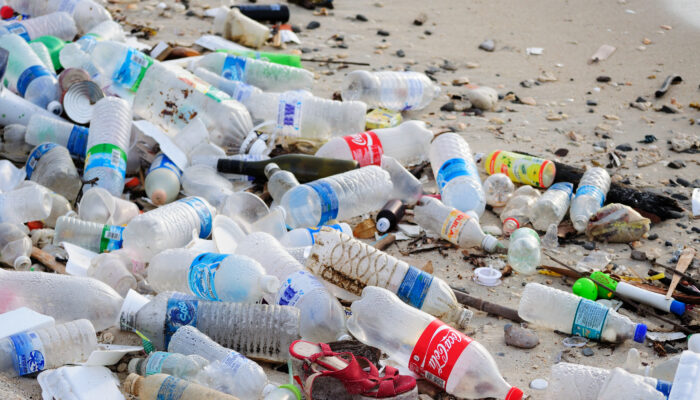Will innovation save us?

Two such stories are worthy of mention when it comes to R&D Tax Credits. The first has been driven by the Blue Planet documentary highlighting the level of plastics in our oceans, which has driven the argument against single use plastic and caused us to consider our reliance on other plastics. Then over the summer the CO2 shortage has identified how reliant we are on products when it comes to our normal day to day expectations.
How do we take single use plastics out of the market when we have become so reliant on them?
Whether it’s plastic straws at your local fast food outlet or your chopped Melon and Grape that you buy from your local Supermarket, the prevalence of single use plastics in our society has sky rocketed, because it is what we have demanded of our suppliers.
In some cases, there has been a simple solution, the plastic bag tax has significantly reduced the use of single use plastic bags, and those of us that still aren’t organized enough to have their own plastic bag in the car will buy a bag and then use it to store the recycling. One of our supermarket chains has now said that they are going back to paper bags for packing fruit and veg, It’s innovative, but not the right sort of innovative for R&D Tax Relief.
Over the last 18-24 months, Amazon have changed their packaging to take out plastic and introduce a paper-based product that will protect your purchase from damage in an oversized box, but they have also been working on the size of their packaging to reduce their transportation costs. Much of this work has probably been subcontracted out to third parties who have come up with innovative ways of packing products and increasing the robustness of their cardboard packaging, indeed we went over to Kent to talk with one such business, who were eligible to claim.
There must be an alternative to the plastic boxes that store our meat, our salads and our prepared meals and there must be people out there investigating potential solutions, it is these innovators that we will be thanking in 10 years’ time.
Who knew CO2 was so pervasive in our current supply chain?
Having worked in a pub in my formative years, I knew that a CO2 line was attached to the Lager to give it that certain effervescence that you expect. Despite having grown up in Buxted in East Sussex, I managed to miss out on the opportunity of working at the Mayhew Chicken factory just up the road in Five Ash Down, so I had no idea that they used CO2 to stun animals before they were killed, and I only had an inkling that they must use some form of gas to prolong the life of packaged meat and salads.
So, are these shortages in CO2 are going to be a regular occurrence?
It would seem that at this moment in time it is more a case of circumstance than anything else. Food grade CO2, which is where there is a shortage, is a by-product from ammonia processing plants. These plants, unfortunately, tend to be less active during the summer months and therefore is when they plan downtime for maintenance, it just seems that they have all planned to be down at the same time.
If, however, they are to become a more regular occurrence, there must be some bright spark somewhere thinking we need to find a better solution or an alternative solution to prevent such challenges having a profound effect on our supply chain. It’s bad enough there being a beer shortage during a World Cup, what happens if there’s no Pimm’s and Lemonade at Wimbledon, or no Fosters for the Ashes?
Is there an alternative to CO2?
It would seem the simple answer at the moment is no there is not, at least not one that has been tried and tested and proven to be as equally beneficial and financially viable. There are many benefits to CO2, perhaps the most important being that it doesn’t affect the flavor or textural properties of food, but the main reason that it is used is that it prevents microbial growth. The other additional benefits are that it is inert and can be used and transported safely.
It is normally situations like this that start a project to investigate and find an alternative to something when there is a shortage or a change in legislation or regulations that prevents the use of a particular material or ingredient.
Read more on R&D Tax Credit statistics.


